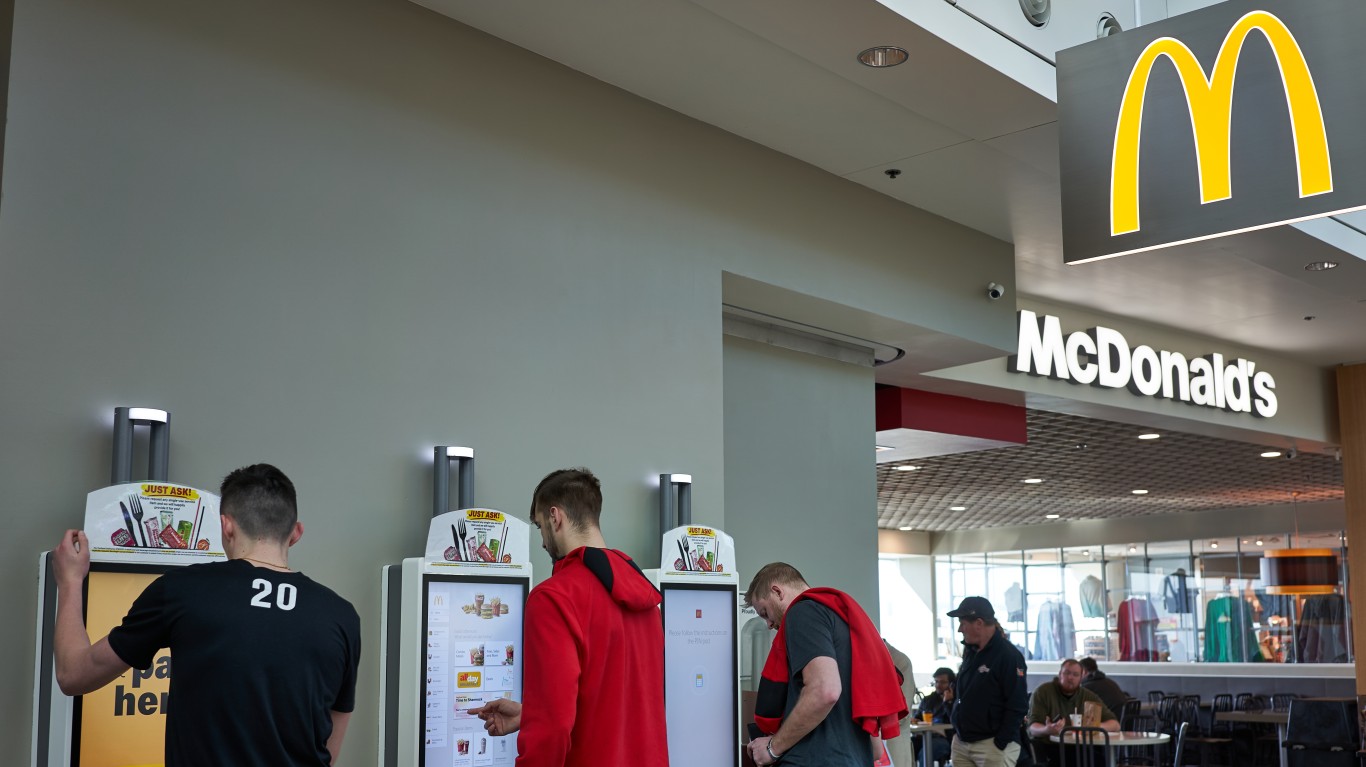 Food is one of the defensive sectors for equity investors if there ever was one. Now, step back for a minute and consider a company like Campbell Soup Company (NYSE: CPB). Canned soup and similar products… Pace picante sauces, V8, Pepperidge Farms, Prego Italian sauces, Swanson, and more… None of these brands are exactly considered expensive by any means, but it turns out that these may just be shaping up to be ‘stealth’ luxury brands rather than the brands that make up traditional defensive stocks.
Food is one of the defensive sectors for equity investors if there ever was one. Now, step back for a minute and consider a company like Campbell Soup Company (NYSE: CPB). Canned soup and similar products… Pace picante sauces, V8, Pepperidge Farms, Prego Italian sauces, Swanson, and more… None of these brands are exactly considered expensive by any means, but it turns out that these may just be shaping up to be ‘stealth’ luxury brands rather than the brands that make up traditional defensive stocks.
On the eve of installing soon-to-be Chief Executive Denise Morrison, Campbell fine-tuned its revenue and profit guidance for 2011 and 2012. The new CEO and her management team have actually been running the company since early March and will officially take over with the start of Campbell’s fiscal year on August 1. Coincident with announcing its financial guidance, the iconic purveyor of processed and packaged foods is freshening its strategic vision in up-to-date and innovative terms.
For fiscal 2012, Campbell estimates that profit will fall 4% to 6% and that its sales will be flat to up 2%. The company expects final earnings slightly greater than $2.49 per share for fiscal 2011, only about 1% above the 2010 earnings. The company’s prior guidance had looked for 2011 earnings to decrease 1 percent to 3 percent. Revenue for 2011 is still expected to be flat. Campbell Soup’s return on equity screens out above 70%, but its trailing PE is 14.1 and its forward PE is 13.7.
One issue that was working against the food brands in general, and particularly Campbell Soup, is private label brand initiatives from grocery stores and other stores. Another risk is simple meals rather than just other canned products. Part of the move started in the recession as consumers were willing to try almost anything to save money and the packaging did not matter. The big difference is in the price. That being said and something that is a game-changer if it holds, one plan of the company is to alter recipes and even to come out with higher-end soup products. The company is also going to try go for more flavor and is going to increase its marketing budget.
The shares were down for part of the pre-market this morning, but apparently Wall Street decided that enough is enough. The shares closed up 1.3% today at $34.59 and the 52-week price range is $32.11 to $36.37. Campbell shares hit $40 at the peak of 2008, and they hit $42 at the peak of 2007. The stock was above $50 in the late 1990s. Campbell does currently offer a dividend yield of about 3.4% for investors, which is more in-line with defensive stocks rather than luxury stocks.
Many of the true defensive stocks have been hitting all-time highs up until the recent weeks. Campbell still has a long way to go before its stock gets to any all-time high. The fear this morning was that guidance was being taken as soft, but the prevailing thought is that perhaps the new team is giving very easy targets to hit. That may seem unfair to some, but setting expectations low and overdelivering is no new concept. The question boils down to whether or not the new strategy will pay off.
JON C. OGG
Get Ready To Retire (Sponsored)
Start by taking a quick retirement quiz from SmartAsset that will match you with up to 3 financial advisors that serve your area and beyond in 5 minutes, or less.
Each advisor has been vetted by SmartAsset and is held to a fiduciary standard to act in your best interests.
Here’s how it works:
1. Answer SmartAsset advisor match quiz
2. Review your pre-screened matches at your leisure. Check out the advisors’ profiles.
3. Speak with advisors at no cost to you. Have an introductory call on the phone or introduction in person and choose whom to work with in the future
Thank you for reading! Have some feedback for us?
Contact the 24/7 Wall St. editorial team.


